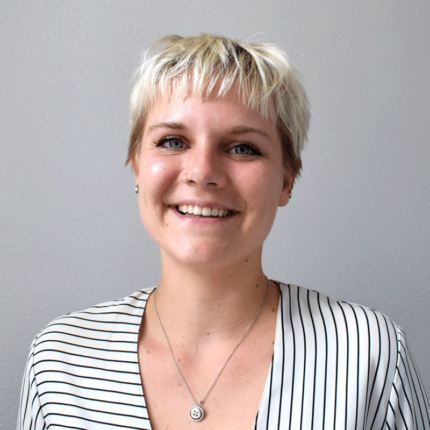When polled, members of the public say they feel proud of our universities, but they have little knowledge of the benefits they bring beyond undergraduate teaching.
Launched in response to this research the MadeAtUni campaign aims to shift perceptions towards universities by bringing to life the many ways universities are making a positive difference to people, lives and communities.
While the stories we are telling are meant to be heart-warming, this campaign isn’t fluffy. It’s a necessary and powerful counter-narrative to some of the stories about the sector we read in the media which haven’t, as yet, dented public pride in the UK’s universities. It’s a way to communicate directly and meaningfully about our impact and rise above the noise.
So the MadeAtUni campaign was developed to reach our target audience with stories of the many ways universities make a difference to their everyday lives.
We all benefit, even those who have not been to university
Critically, this campaign is not about encouraging people to attend university. Instead, it seeks to demonstrate how everyone benefits from universities, not just those who attend.
Meaningful perception shift won’t happen overnight, nor will it happen through telling the public they should care about the things we do. We must overcome the perceived disconnect that exists between people’s lives, and the activities and outputs of universities, which contributes to a feeling of universities being remote and unrelatable.
To bridge the gap, we must demonstrate our relevance through communicating with the public about the things they care about and showing how universities are central to these issues. Abstract stats about impact don’t resonate with people emotionally, and instead tend to alienate, and amplify feelings of elitism, with large economic figures perceived as impersonal and something “others” benefit from. We should focus instead on telling stories of how universities improve everyday lives for everyone. The most engaging stories in the first phase of the campaign were those that were of unusual or unexpected work taking place in universities, which sparked reactions of wonder and intrigue.
Storytelling must be authentic and connect with people
This may seem obvious, but messages need to be authentic and speak to people’s genuine interests, using everyday language, be free from technical jargon and easy to understand. Editing over 200 case studies for this campaign has taught me one thing: too often the most impressive and relatable content is buried at the bottom of the case study. We need to excavate these gems and display them proudly.
By using people-centred stories which feature those who benefit from the work, we can demonstrate the tangible difference university research and expertise makes.
Finding others to advocate for you is always more effective than doing it yourself
The public expects universities to talk about their impact, but unexpected advocates championing our corner are much more likely to get noticed. Our polling found that the public is more receptive to positive messages from sources such as patients, businesses and charities (sorry, not universities). Swimmer Rebecca Adlington didn’t go to university, but she was the perfect spokesperson for the launch of our campaign, sharing personal stories of how universities saved her sister’s life and helped her to win Olympic gold.
The most important advocates are the third party organisations whose work relies on universities, like charities, businesses, arts and sports bodies. One challenge universities face is the length of time between the research taking place in the institution and the work resulting in measurable difference. Usually this chain of activity involves external parties: charities, organisations and others who tend to have the monopoly on public-facing promotion of the results of that research.
Most people, if asked, would say that Cancer Research UK is responsible for the research leading to breakthroughs in treating cancer. Few realise that universities are central to supporting the activities of many of our most-loved charities, and that their fundraising will often result in research undertaken within institutions.
Getting recognisable charities to publicly acknowledge the role of universities in their life-saving work is essential in shifting public perception. Such public acknowledgement not only validates our work, but will also increase the reach of our messages through their significant social presence. When we launched the campaign, we reached over 20 million individual users on social media, partly due to the support of charities and businesses with large platforms.
There is strength in unity and power in local storytelling
We know from our polling that there’s a desire from the public for the sector to come together collectively, perhaps as a response to a perception of competition between universities. It was important MadeAtUni is seen a collegial campaign: not only about individual successes but our shared pride in the collective story of the difference universities have made across the country. 130+ voices are also more powerful than one, and while collectivism is important, the success of the campaign is boosted through local storytelling and building on local pride.
Winning hearts and minds won’t happen overnight or over a year, so it’s important we maintain momentum and keep building on this campaign. Phase Two celebrates the contribution of universities to the nation’s health and wellbeing, a theme we know the public is particularly interested in hearing about. The UK’s universities are already recognised for the work they do training the next generation of nurses, doctors and healthcare professionals, but the Nation’s Lifesavers provides a platform to share over 100 stories of the individuals and groups whose work through UK universities is saving lives and making a life-changing difference to our health and wellbeing, and highlighting the stories of those whose lives they’ve changed.
Look out for the list of the Nation’s Lifesavers and their beneficiaries stories in the media and on social media, and visit our campaign website and share your favourite stories using #MadeAtUni













